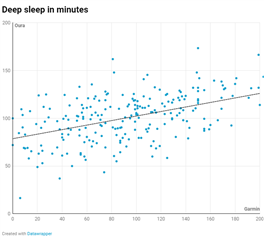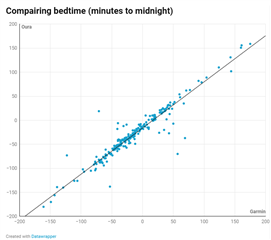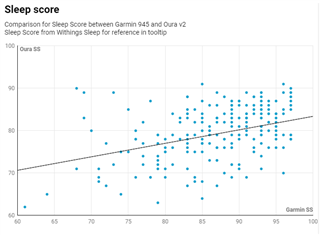Finally decided to download data from my Garmin 945, Oura ring v2 and Withing Sleep mat and compare sleep metrics for several months worth of nights. Seems (at least for me, n=1) that bedtime and awake time correlates good between devices, while other metrics like sleep stage duration have weak correlation.
Full post at Medium if one is interrested - https://quantify.d.pupkov.com/sleep-metrics-comparison-ea91c6456734?source=friends_link&sk=a23060f76d084a1600691aee6d444f1a
Couple of charts from the post:



As a note - I didn't include HR and HRV data comparison in this post. Based on my experience HR/HRV data between Oura/Garmin/Withings have much better correlation than sleep data.


